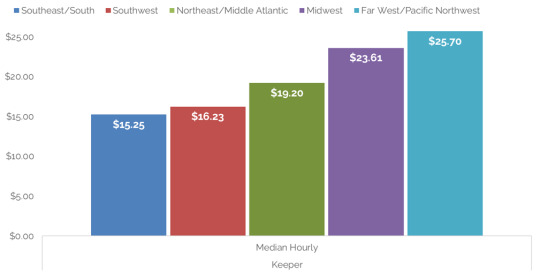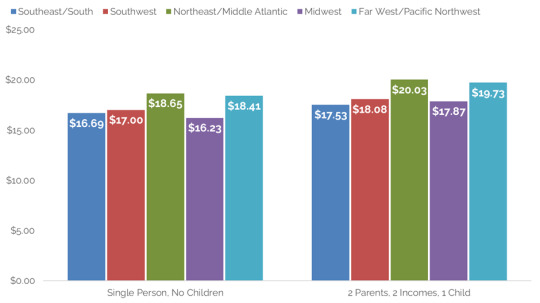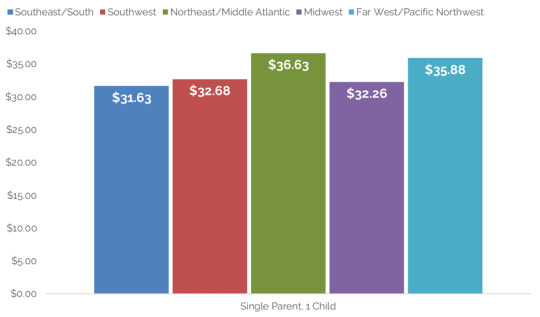#marketing and strategic support
Text
Pitching for Success: Start-Up Pitch Deck Support
For more details, visit:
0 notes
Text
Hospertz: Your One-Stop Partner for Building a Successful Healthcare Facility
Hospertz: Your One-Stop Partner for Building a Successful Healthcare Facility
Streamlining the Journey: Hospertz India Pvt. Ltd. (HIPL) caters to the healthcare industry as a turnkey solutions provider. They offer comprehensive support, guiding medical professionals through every step of establishing a new medical facility.
youtube
From the Ground Up: Their services encompass the entire process, from selecting a suitable location and obtaining necessary licenses to securing funding and attracting investors. They even assist with hiring qualified personnel and developing a strategic marketing plan.
Addressing Modern Challenges: HIPL acknowledges the growing complexities within the healthcare landscape. Their expertise helps navigate the increasing bureaucratic hurdles associated with setting up a new medical establishment.
Experience You Can Trust: With their extensive experience, HIPL has a proven track record of assisting doctors, dentists, and other specialists in building multi-specialty healthcare facilities across India. Their meticulous approachensures every detail is addressed, from acquiring high-tech equipment at competitive prices to recruiting qualified staff.
Focus on What Matters: By partnering with Hospertz, medical professionals can concentrate on their core competency: delivering exceptional patient care. HIPL takes care of the rest, handling day-to-day operations, licensing procedures, streamlining processes, and staff protocols. Their objective is to establish a smooth-running, patient-centric, and profitable healthcare facility.
Realizing Your Vision: HIPL acts as a trusted advisor, providing end-to-end project consultancy and management services. Their comprehensive solutions encompass the entire project lifecycle, from initial concept to final commissioning.
A Guiding Light: Driven by the vision of fostering quality-conscious and profitable healthcare institutions, HIPL leverages its three core strengths:
Physician-Inspired Knowledge: They understand the specific needs and challenges faced by medical professionals.
Unrivaled Technology: They provide access to state-of-the-art equipment and resources.
Impeccable Services: They offer a comprehensive suite of services to ensure a seamless operation.
A Collaborative Approach: HIPL prioritizes client satisfaction. They maintain continuous communication throughout the project, addressing any potential roadblocks and ensuring a collaborative effort towards achieving the desired outcome. Their ultimate goal is to transform your vision for a successful healthcare facility into a reality.
Building Trust: HIPL emphasizes transparency and honesty in all their dealings with clients and investors. They recognize that your vision is paramount, and they strive to make it the cornerstone of their every action.
#hospertz#turnkey solutions#comprehensive support#selecting a suitable location#obtaining necessary licenses#securing funding#attracting investors#hiring qualified personnel#strategic marketing plan#bureaucratic hurdles#multi-specialty healthcare facilities#high-tech equipment#recruiting qualified staff#delivering exceptional patient care#day-to-day operations#licensing procedures#streamlining processes#staff protocols#profitable healthcare facility#end-to-end project consultancy and management services#initial concept#final commissioning#fostering quality-conscious and profitable healthcare institutions#physician-inspired knowledge#unrivaled technology#impeccable services#client satisfaction#continuous communication#collaborative effort#transparency and honesty
1 note
·
View note
Text
Unlocking the Potential: Why Shadnagar Near Hyderabad, Telangana, Is a Prime Choice for Investors and Realtors
Interested? – WhatsApp – +91 9100166058
Introduction: Nestled on the outskirts of Hyderabad, Telangana, Shadnagar has emerged as a promising investment destination for both seasoned investors and budding realtors alike. Boasting strategic location advantages, robust infrastructure development, and a thriving economic landscape, Shadnagar presents a compelling case for those seeking lucrative…

View On WordPress
#affordable housing#Bengaluru-Hyderabad Highway#Commercial Opportunities#connectivity#Economic Growth#Emerging Market#Government Support#Hyderabad#industrial development#Infrastructure Development#investment#Prime Location#Promising Returns#Proximity to Airport#Rajiv Gandhi International Airport#real estate#Residential Projects#Shadnagar#strategic location#Telangana
0 notes
Text
Data-Driven Decision-Making: The Backbone of Successful U.S. Business Strategies
Explore the transformative impact of data-driven decision-making on businesses in the United States. Uncover key insights and strategies that propel success, driving innovation and resilience in today's dynamic market landscape.
#Data-Driven Decision-Making#Business Strategies#U.S. Market Insights#Data Analysis#Business Innovation#Market Resilience#Strategic Decision-Making#Analytics in Business#Competitive Advantage#Business Intelligence#Market Trends#Data-Backed Innovation#Decision Science#Corporate Decision-Making#Business Optimization#Information-driven Strategies#Market Dynamics#Adaptive Business Models#Insightful Decision Processes#Decision Support Systems
0 notes
Text
Franchise Guru™: Your Trusted Partner in Franchise Success
In the dynamic world of franchising, navigating the path to success requires expertise, strategic insights, and unwavering support. Franchise Guru™ emerges as a beacon of guidance, offering comprehensive Franchise and Business Consulting Services to both emerging franchisors and franchisees. This article delves into the multifaceted approach of Franchise Guru™, exploring how it has become the go-to partner for realizing franchise aspirations.
Section 1: The Franchise Landscape and Its Challenges
Franchising presents unique opportunities and challenges, demanding a nuanced understanding of market trends, consumer behavior, and operational intricacies. Franchise Guru™ begins by acknowledging the complexities inherent in the industry, recognizing that success hinges on a delicate balance of strategy, innovation, and adaptability.
Section 2: Franchise Guru™: A Holistic Approach to Franchise Development
Franchise Guru™ sets itself apart through a holistic approach to franchise development. By offering services ranging from strategic planning and market analysis to operational efficiency consulting, the team at Franchise Guru™ ensures that every aspect of the franchising journey is meticulously addressed. This comprehensive approach is designed to empower both franchisors and franchisees with the tools they need to thrive.
Section 3: Tailored Solutions for Emerging Franchisors
For those looking to expand their business through franchising, Franchise Guru™ provides tailored solutions. From developing effective franchise development strategies to optimizing franchise systems and assisting with legal considerations, Franchise Guru™ is committed to paving the way for emerging franchisors to build successful and sustainable franchise networks.
Section 4: Empowering Franchisees for Success
Franchise Guru™ recognizes the pivotal role played by franchisees in the success of any franchise system. Through targeted business advisory solutions, market entry consulting, and ongoing support, Franchise Guru™ empowers franchisees to navigate the challenges of entrepreneurship while maximizing the potential for profitability.
Section 5: International Reach and Expertise
With a global presence spanning key locations like Al Huda Building (Dubai), Mumbai (India), and Beirut (Lebanon), Franchise Guru™ brings international expertise to the table. This global perspective is invaluable for businesses aiming to expand their franchises across borders, offering insights into diverse markets and cultural nuances.
Section 6: Success Stories and Testimonials
The true measure of a franchise consulting service's effectiveness lies in the success stories of its clients. Franchise Guru™ takes pride in the achievements of the franchisors and franchisees it has supported. Through testimonials and case studies, this section highlights real-world examples of businesses that have thrived under the guidance of Franchise Guru™.
Conclusion:
In the ever-evolving landscape of franchising, having a trusted partner like Franchise Guru™ can make all the difference. From strategic planning to operational execution, Franchise Guru™ stands as a beacon of support for those aspiring to achieve franchise success. With a commitment to excellence and a proven track record, Franchise Guru™ invites both emerging franchisors and franchisees to embark on a journey of growth, innovation, and lasting success.
For more information or to explore how Franchise Guru™ can support your franchise goals, contact us today. Your success is our mission.
#Business Franchise#Franchise Consulting#Consulting Franchise#Franchise Business Model#Franchising Opportunities#Franchise Ownership#Franchise Business Opportunities#Small Business Franchise#Strategic Business Planning#Emerging Franchisor Support#Franchisee Success Strategies#Franchise Development Services#Franchise Network Building#Franchise Marketing Solutions#Franchising for Business Owners
0 notes
Text
#Softbank#AI#corporate clients#generative artificial intelligence platform#supercomputer#20 billion Yen#Nvidia Corp.#microchips#information processing capabilities#call centers#customer support services#revenue#shareholders meeting#Junichi Miyakawa#Softbank Group#Masayoshi Son#AI businesses#strategic partnerships#AI market#industries#mobile network provider#Japan#cutting-edge AI technology#visionary move#groundbreaking journey#unrivaled AI services#Softbank Corp.#Softbank Group Chairman and CEO#AI revolution#tokyo
0 notes
Text
The Art of Taking Calculated Risks for Business: Unlocking Opportunities and Driving Success
Introduction:In the dynamic world of business and entrepreneurship, taking risks is an inherent part of the journey to success. However, it’s not about recklessly plunging into the unknown; it’s about understanding the art of calculated risks. In this blog post, we will delve into the intriguing realm of risk-taking, exploring its significance, strategies, and the transformative impact it can…

View On WordPress
#Business development#Business Growth#Business innovation#Business mindset#Business opportunities#Calculated risks#Entrepreneurial journey#Entrepreneurship#Growth mindset#Learning from failure#Market research#Networking#Risk analysis#Risk and reward#Risk assessment#Risk management#Risk mitigation#Strategic decision-making#Success strategies#Supportive network
0 notes
Text
Happy National Zookeeper Week!
I’ll admit, I’m feeling a little spicy about it this year (well, every year) because zoos use the celebration for lots of positive facility PR, yet staff don’t often get the support and respect that is claimed in those posts.
So I want to share this great article written by a zoo industry consulting group last year looking at the reality of what happens when a workforce ends up conflicted between their passion (zoos and animals) and pragmatism (paying rent, existing in a capitalist society). They assessed AZA compensation rates by region against things such as a living wage and rental rates in the area. (All text formatting within quotes, such as bold and italics, is original to the article text.)
I cannot give the Canopy Group enough support for the way they framed this research:
“By observing the economics of keeper compensation, it’s no secret that keepers land on the lower end of the wage spectrum. Like all other wages and salaries, the market value of keeper compensation is driven by several economic factors – including the size of the labor pool, the rigor and danger of the work, the technical ability required, and the educational requirements. However, there is one factor that artificially lowers the market value of keeper compensation more than any other: passion.
In this article, we’ll take a look at why passion lowers the market value of animal care worker wages. More importantly, we’ll consider many factors that have emerged in recent years that are making people reevaluate the value of following their passion – a trend contributing to The Great Resignation, especially as it applies to zoos, aquariums, and similar organizations. (…)
The argument here is passion versus pragmatism: the unknown versus the sure thing. It is a decision all zookeepers and animal care technicians have made. Working with animals is immensely rewarding, but this passion is also very popular. This, historically, has meant that the keeper candidate pool is very large. Therefore, if the wage is livable and working conditions are reasonable, the pool should remain large. In a very real sense, a passion for animals drives down the market value of keeper compensation. Anyone who has been through an Economics 101 course will recognize this as a fundamental market principle: supply vs. demand.
However, many zoos and aquariums are having a more difficult time filling positions than normal and have started to see higher turnover rates in recent years. This begs the question – is the current keeper wage too low?”
Their findings?
Here’s their graph of “the median wage of keepers from organizations in different AZA-defined regions” from an AZA survey done in 2021. (Median is the type of average that looks at the middle of a data set’s range).

The median wage for AZA keepers in the South/Southeast was just over $15/hr at the low end, and the median wage for AZA keepers in the Far West / PNW was a little under $26/hr. That’s pretty dang low everywhere, especially when you factor in the increased cost of living in places like the West Coast. Also consider that looking at the median wage doesn’t mean this reflects just entry-level compensation - this data indicates the the compensation middle for all keeper positions, including people who have built their careers as keepers in those places long-term.
Then, they compared those wages to the “living wage” in each region - which they defined as “a calculation of what it takes to live in a particular area, without any other income. A living wage calculation takes into consideration how many earners are in a household, how many children are being supported, etc. The living wage includes the costs of all the basic items a household needs to be self-sufficient.”
“If you receive a wage for a job that is below the living wage, then you are essentially taking a negative net income. This is unsustainable for the long term, and essentially defines where wages start to exploit passion.”
Here’s a figure they provided using the MIT Living Wage Calculator showing the average living wage for each of the AZA regions. The chart on the left shows the living wage for a single person with no kids; the second, for two parents with two incomes and one child to support.

“By comparing the two graphs [to the earlier graph of the AZA median compensation rates], we find that median wages in the Southeast/South and Southwest regions are lower than the living wage for each household configuration in those regions. In other words, if you are a single person household or part of a two-income household raising 1 child in the South, a starting keeper salary will likely leave you with a negative net income. While many people work at this level, it increases the risk of accumulating debt, lowers a person’s ability to afford a home, set a much later retirement age, and can lead to many other negative, long-term effects.”
Big yikes, right?
Next, they looked at living wage vs. compensation for single parents.

“The single-parent living wage exceeds the average keeper wage in all AZA regions. In fact, the living wage required as a single parent is double the average AZA keeper wage in some regions.”
And then they did housing, specifically, being able to purchase a home.
“In many places, even a two-income household at an average keeper salary would not purchase a mid-level home. This means that keepers have to wait far longer than their peers to purchase a home. While paying rent in the meantime, this rent will account for a larger portion of their income than their peers. All in, these effects can set hopeful homeowners back years or decades.”
Canopy’s conclusion was something anyone involved in the field knew was coming.
“Companies like Chipotle, McDonalds, Best Buy, FedEx, Home Depot, Publix, and Walmart are all offering similar starting wages near starting keeper wages – plus many fringe benefits (like tuition reimbursement) and ample advancement opportunities. Many potential keepers in younger generations are putting their passion on the shelf so they can meet basic standard-of-living concerns.
To attract and retain quality candidates, an organization must consider the journey each new employee would have to make over their career. If the journey is fraught with massive debt, decreased disposable income, and limited career opportunities, then you are limiting your potential candidate pool to the small group of people who have decided that following their passion is worth significant lifelong financial hardship. There are many potential candidates out there willing to sacrifice and arm and leg for animals and conservation, but they wouldn’t dare jeopardize the financial future of their dependents and families.”
This is something I’ve heard about for years, and seen first hand. The low average wage at zoological facilities has been damaging their ability to hire and retain skilled staff for as long as I’ve been involved in the industry. I know so many zookeepers who still have roommates into their 30’s, or work multiple jobs, just to be able to make ends meet.
There’s a mythology about zookeeping jobs, a narrative that seeps into the field and actively exploits people’s passion for the job: it tells people that they’re so lucky to be able to work with these rare and cool animals; that they’re greedy and ungrateful when they ask for more compensation because they’re privileged to get to have the job at all. It says that most people would give anything to have these opportunities, so current zookeepers are interchangable and easily replaceable. Ask for too much? Push for a living wage? There’s always someone willing to take your spot. Not all facilities perpetuate this mentality - some places do treat their staff well without intentionally manipulating them to stay them in unsustainable jobs, and there can be legitimate financial reasons that limit staff compensation (mostly at smaller facilities, afaik) - but it’s a reality in the field.
For a long time, this type of mentality towards staff was sustainable. There really were always more people wanting to work in the field. But now, after three years of pandemic stressors and inflation, it’s starting to be a problem. A lot of staff left during the last few years, and facilities are having a really hard time hiring people and retaining them for any duration. I think a large part of that is low compensation rates. People are prioritizing long-term financial stability and recognizing when their passion is being exploited.
When I first started on tumblr back in 2011, there was a whole group of us within the United States who were baby zookeepers or volunteering as industry hopefuls. We all became friends, and I’ve stayed in touch with, or at least aware of, most of them as their careers progressed. Of the 10-15 or so people in that cohort? I can think of three who are still employed in the zoo industry. Everyone else has moved on into other fields - often with great grief over the loss - because of the extreme emotional labor, the physical exhaustion, and the lack of appropriate compensation.
But I guess that annual pizza party, being featured on social media, and maybe getting additional snacks all week makes up for it all?
#national zookeeper week#zoo industry#living wage#compensation#please support your local zookeeper#AZA accreditation#AZA zoos#zoos
555 notes
·
View notes
Note
so do you actually support ai "art" or is that part of the evil bit :| because um. yikes.
Let me preface this by saying: I think the cutting edge of AI as we know it sucks shit. ChatGPT spews worthless, insipid garbage as a rule, and frequently provides enticingly fluent and thoroughly wrong outputs whenever any objective fact comes into play. Image generators produce over-rendered, uncanny slop that often falls to pieces under the lightest scrutiny. There is little that could convince me to use any AI tool currently on the market, and I am notably more hostile to AI than many people I know in real life in this respect.
That being said, these problems are not inherent to AI. In two years, or a decade, perhaps they will be our equals in producing writing and images. I know a philosopher who is of the belief that one day, AI will simply be better than us - smarter, funnier, more likeable in conversation - I am far from convinced of this myself, but let us hope, if such a case arises, they don't get better at ratfucking and warmongering too.
Many of the inherent problems posed by AI are philosophical in nature. Would a sufficiently advanced AI be appreciably different to a conscious entity? Can their outputs be described as art? These are questions whose mere axioms could themselves be argued over in PhD theses ad infinitum. I am not particularly interested in these, for to be so on top of the myriad demands of my work would either drive me mad or kill me outright. Fortunately, their fractally debatable nature means that no watertight argument could be given to them by you, either, so we may declare ourselves in happy, clueless agreement on these topics so long as you are willing to confront their unconfrontability.
Thus, I would prefer to turn to the current material issues encountered in the creation and use of AI. These, too, are not inherent to their use, but I will provide a more careful treatment of them than a simple supposition that they will evaporate in coming years.
I would consider the principal material issues surrounding AI to lie in the replacement of human labourers and wanton generation of garbage content it facilitates, and the ethics of training it on datasets collected without contributors' consent. In the first case, it is prudent to recall the understanding of Luddites held by Marx - he says, in Ch. 15 of Das Kapital: "It took both time and experience before workers learnt to distinguish between machinery and its employment by capital, and therefore to transfer their attacks from the material instruments of production to the form of society which utilises those instruments." The Industrial Revolution's novel forms of production and subsequent societal consequences has mirrored the majority of advances in production since. As then, the commercial application of the new technology must be understood to be a product of capital. To resist the technology itself on these grounds is to melt an iceberg's tip, treating the vestigial symptom of a vast syndrome. The replacement of labourers is with certainty a pressing issue that warrants action, but such action must be considered and strategic, rather than a reflexive reaction to something new. As is clear in hindsight for the technology of two centuries ago, mere impedance of technological progression is not for the better.
The second case is one I find deeply alarming - the degradation of written content's reliability threatens all knowledge, extending to my field. Already, several scientific papers have drawn outrage in being seen to pass peer review despite blatant inclusion of AI outputs. I would be tempted to, as a joke to myself more than others, begin this response with "Certainly. Here is how you could respond to this question:" so as to mirror these charlatans, would it not without a doubt enrage a great many who don't know better than to fall for such a trick. This issue, however, is one I believe to be ephemeral - so pressing is it, that a response must be formulated by those who value understanding. And so are responses being formulated - major online information sources, such as Wikipedia and its sister projects, have written or are writing rules on their use. The journals will, in time, scramble to save their reputations and dignities, and do so thoroughly - academics have professional standings to lose, so keeping them from using LLMs is as simple as threatening those. Perhaps nothing will be done for your average Google search result - though this is far from certain - but it has always been the conventional wisdom that more than one site ought to be consulted in a search for information.
The third is one I am torn on. My first instinct is to condemn the training of AI on material gathered without consent. However, this becomes more and more problematic with scrutiny. Arguments against this focusing on plagiarism or direct theft are pretty much bunk - statistical models don't really work like that. Personal control of one's data, meanwhile, is a commendable right, but is difficult to ensure without merely extending the argument made by the proponents of copyright, which is widely understood to be a disastrous construct that for the most part harms small artists. In this respect, then, it falls into the larger camp of problems primarily caused by the capital wielding the technology.
Let me finish this by posing a hypothetical. Suppose AI does, as my philosopher friend believes, become smarter and more creative than us in a few years or decades; suppose in addition it may be said through whatever means to be entirely unobjectionable, ethically or otherwise. Under these circumstances, would I then go to a robot to commission art of my fursona? The answer from me is a resounding no. My reasoning is simple - it wouldn't feel right. So long as the robot remains capable of effortlessly and passionlessly producing pictures, it would feel like cheating. Rationally explaining this deserves no effort - my reasoning would be motivated by the conclusion, rather than vice versa. It is simply my personal taste not to get art I don't feel is real. It is vitally important, however, that I not mistake this feeling as evidence of any true inferiority - to suppose that effortlessness or pasionlessness invalidate art is to stray back into the field of messy philosophical questions. I am allowed, as are you, to possess personal tastes separate from the quality of things.
Summary: I don't like AI. However, most of the problems with AI which aren't "it's bad" (likely to be fixed over time) or abstract philosophical questions (too debatable to be used to make a judgement) are material issues caused by capitalism, just as communists have been saying about every similarly disruptive new technology for over a century. Other issues can likely be fixed over time, as with quality. From a non-rational standpoint, I dislike the idea of using AI even separated from current issues, but I recognise, and encourage you to recognise, that this is not evidence of an actual inherent inferiority of AI in the abstract. You are allowed to have preferences that aren't hastily rationalised over.
102 notes
·
View notes
Text
In the wake of the modernizing process and rising fascism in Europe, members of the Frankfurt School at the Institute for Social Research astutely observed that with the rise of modernity and mass culture, culture had become an industry in itself, taking on the characteristics of every other capitalist commodity and obeying the same rules of production. While their analysis primarily focused on modernity and cultural production in Germany, their contributions to an understanding of mass culture and its mechanisms of ideological control are highly applicable to the history of Italian fascism as well. Fascism rose in Italy well before its German counterpart, and while both were aided by the support of finance capital and the conservative elite, their success was also due to the mass appeal they were able to create. Technological changes in communication, new social relations and commodity forms, and the extension of the market into the realm of culture allowed fascism to flourish in Italy, and became highly effective means of reinforcement after the Italian Fascist party seized power. However, it was not through sheer luck that these conditions worked favorably for Mussolini. He and the Italian fascists recognized the shifting social relations that accompanied modernity and strategically used them to build their image and the new Fascist culture they envisioned. Mussolini’s efforts may not have been successful if not for the tacit support he received from foreign press, specifically that of the United States, which lauded his actions and portrayed him similarly to a celebrity. Building on the work of Theodor Adorno and Walter Benjamin, I examine how the rise of mass culture and the logic of the culture industry influenced Italian fascism and the Fascist regime’s use of propaganda.
#mine#critical theory#fascism#posting some old essays#its just a paper i wrote for class it isnt groundbreaking but i think it does kind of explain some critical theory concepts
132 notes
·
View notes
Text
Competitive Intelligence 2.0 for Improved Decision Making & Efficient Gains
Introduction
The activity of gathering and evaluating data on competing firms, industry trends, and consumer preferences to obtain a competitive edge in the market is known as competitive intelligence. It is a crucial component of business strategy since it aids organizations’ in comprehending the competitive environment and choosing how to position themselves inside it. Monitoring competitors’ offerings and pricing, keeping tabs on consumer trends and market dynamics, and examining media coverage and industry statistics are just a few of the activities that can be included in competitive intelligence. Companies can discover opportunities and challenges, create successful marketing and sales strategies, and make wise business decisions by acquiring and evaluating these data.
Using a range of business intelligence tools and strategies helps to acquire a complete view of the market. For instance, market research can offer insightful information about customer behavior and tastes, while financial analysis can assist companies in understanding the financial standing of their rivals. Combining these different strategies can result in a more thorough and complex understanding of the market and the competitive environment.
Types of Competitive Intelligence
There are several different types of competitive intelligence that businesses can use to inform their decision-making and stay ahead in a rapidly changing market:
-Strategic intelligence: This type of intelligence assists in strategic planning and decision-making by focusing on the long-term aims and objectives of the company.
-Tactical intelligence: It is a subset of general intelligence that focuses on urgent, short-term demands and supports daily decision-making and operations.
-Market intelligence: It is the collection of information about the market, such as consumption patterns and preferences, monetary situations, and regulatory developments.
-Financial intelligence: It entails obtaining and analyzing data regarding the financial performance and health of adversaries, including details regarding income, profitability, and debt.
-Product intelligence: It is the collection and analysis of data about the goods and services provided by opponents, including details on their costs, attributes, and performance.
-Competitive analysis: To spot opportunities and dangers, this sort of intelligence entails examining the strengths and weaknesses of competitors.
Benefits of Competitive Intelligence
For firms, competitive intelligence has a variety of benefits, including:

Improved decision-making:
With competitive intelligence becoming increasingly important in today’s business landscape, companies must understand how to gather and analyze information about their competitors and the market. Companies can stay ahead of the curve and make informed decisions that drive success by leveraging the right tools and techniques.
A recent survey found that 92% of companies believe competitive intelligence is important for their business, and 77% have a dedicated competitive intelligence function. With the global competitiveness expected to increase in the coming years, this trend is expected to continue.
Greater competitiveness:
Competitive intelligence can assist companies in identifying opportunities and risks in the market, enabling them to react to shifting conditions more effectively and maintain an advantage over rivals.
The benefits of competitive intelligence are clear. In a survey of over 400 businesses, 85% of respondents reported that competitive intelligence helped them make better business decisions, while 73% said it helped them stay ahead of the competition. In addition, 66% of respondents reported that competitive intelligence helped them identify new business opportunities, and 59% said it helped them avoid potential threats.
Reduced risk:
By being aware of the advantages and disadvantages of competitors and the market, firms can lessen the likelihood that they will make costly errors or misjudge the state of the market.
Improved reputation:
Companies can improve their reputation as thought leaders in their sector by keeping abreast of market trends and competitive activities.
Efficiency gains:
Companies can improve their overall performance and streamline their operations by using competitive intelligence to find best practices and efficiencies.
The Cycle of Competitive Intelligence
To make informed business judgments, the cycle of competitive intelligence refers to the procedure of gathering, examining, and sharing data about opponents and the market. The cycle typically consists of the following steps:
-Planning: Planning entails determining the precise information requirements of the company and creating a strategy for data collection and analysis.
-Collection: Data is collected from a variety of sources, such as social media, business reports, and public records.
-Analysis: Reviewing and evaluating the data to spot trends, opportunities, and potential dangers are the process of analysis.
-Dissemination: This process entails presenting the analysis’ conclusions and suggestions to the organization’s top decision-makers.
-Implementation: This entails incorporating the conclusions and suggestions into business planning and decision-making.
Competitive Intelligence Analysis with Porter’s Five Forces
Porter’s Five Forces is a framework created by Harvard Business School professor Michael Porter for analysing an industry’s competitive forces. The five forces are as follows:

Competitive Intelligence Analysis with Porter’s Five Forces
-The threat of new competitors: This refers to how easy it is for new businesses to enter the market and compete with established ones.
-The threat of substitute goods or services: This refers to the possibility of substitute goods or services to those provided by the current businesses.
-Buyer bargaining power: This refers to a buyer’s ability to negotiate lower prices or demand better terms and conditions from sellers.
-Supplier bargaining power: This refers to a supplier’s ability to negotiate higher prices or better terms and conditions with buyers.
-Rivalry among potential competitors: This describes how fiercely existing businesses in an industry compete with one another.
Magistral’s Services on Competitive Intelligence
Magistral gets insights into the competitive moves far better than the internal sources. These insights are fact-based and free of bias. Our CI services only recommend the strategies worth going for and not every fad the competition tries to follow. Sometimes the noise from the competition can be disturbing, and we help you differentiate the signal from the noise.
Some of the services that are associated with competitive intelligence that are offered by Magistral consulting are –
-Bespoke Market and Competitive Intelligence Services: Our services are made to assist businesses in finding actionable insights that might provide them with a competitive advantage and help them make better decisions regarding their operations and plans. We offer insightful analysis and suggestions that can assist our clients in better managing the present market conditions and positioning themselves for success by utilizing our extensive understanding of markets, industries, and competitors.
-In-Depth Assessment Research Services: We can assist clients in comprehending the complexities and prospects of a particular market by utilizing our comprehensive research capabilities, enabling them to make wise decisions about where to allocate their resources.
-Ecosystem Monitoring and Information Provision: We provide timely and accurate information on the market through reports of our analysis.
-Opportunity Identification and Performance Metrics Frameworks: We help clients harness new opportunities faster.
-Customized Solutions in Niche Domains: We provide customized solutions for improved output.
-Flexible Working Models: At our company, we understand that everyone’s needs and circumstances are different. That’s why we offer a flexible working model that allows our employees to tailor their work schedules to meet their unique needs and preferences. This can include options such as working remotely, flexible start and end times, and the ability to take breaks as needed.
About Magistral Consulting
Magistral Consulting has helped multiple companies to reduce operations costs through its offerings in Marketing and Strategy Support.
About the Author
The article is Authored by the Marketing Department of Magistral Consulting. For any business inquiries, you could reach out to [email protected]
0 notes
Text
Taehyung and jungkook's relationship is overlooked by 90% of the fandom solely because they are so controlled by the narrative of the fandom/company that they cannot quite accept that anything outside is even a remote possibility. Ive been more of a quiet observer for years now [my sister's an army since 2015] and I've seen the boys, moreover I know how marketing and kpop works. It's quite evident if u observe close enough of the pattern on how this group of seven guys who genuinely love music is marketed you would understand to what extent you're being brainwashed. Im not talking about this like a conspiracy theorist. It's quite simple and right infront of you. Yall refuse to accept it that's all.
1. There are a certain set of stories that are made to be told by them, over and over again. Even if it disturbs them or they are bored. E.g: 2018 disbandment story, vmin dumpling incident, jikook rain fight/tokyo trip, mind you there are many things that happend between people who lived together for 10+ yrs but if it cuts the flow of events you are made to believe happened you aren't gonna hear from it, ever.
2. Like stories there are dynamics that each pair is supposed to portray Taegi as annoying/annoyed duo, taejin/jikook as flirty HS boyfriends, namseok/taekook the awkward old friends and no matter how much the relationships change or evolve you won't see it cuz again, it won't FIT the narrative that has already been shown.
3. Like relationships there are characteristics that thankfully some members chose to break out of during their solo era: hoseok always being sunshine and loud ( he's quite serious and very dedicated infact ), jungkook being that muscle dude who only knows how to follow his Hyungs ( he's very independent and has a lot of targets he wants to achieve individually, he's very thoughtful and organized) and Taehyung being WEIRD and weak ( he's extremely intelligent and super strong he's strategic and disciplined)
4. This brings us to the whole Taekook narrative, the fact that they've been seen so much during solo era yet people had the audacity to still call them distant and awkward solely cuz it wasn't via company but through Taehyung's ig or jungkook mentioning him in interviews etc. I think it's needless to say they aren't comfortable being touchy and showy on camera for content, hell if they were to shoot everytime Taehyung and jungkook hangout there would he enough CONTENT till 2067. They're supportive of eo and have a very big shared friend circle, when jungkook went missing for almost 2 months we got to know Taehyung was the one he was with.
5. The thing is everyone [ including my own sister ] thinks that Taehyung is being desperate or such whenever he mentions Taehyung cuz a. Yall have actually led jokers run so fucking rampant that everytime the man mentions him actually doing something you're ready to throw him under the bus and call him a liar or such. b. Im not saying jungkook isn't close to anyone else but when he isn't working or shooting content and just wants to be himself the one you saw him most was around Taehyung and yes it matters. In the name of hating shippers yall have not only dissed the quite frankly PRIVATE bond they seem to share but went as far as dissing Taehyung himself cuz of the extreme level of manipulation yall are under.
Ik imma find armys [jikookers ]under this sooner or later calling me names but to be honest I'm sick and tired of yall dissing very real people and their very real human relationships solely based off the content yall are made to believe is 100% candid. Go touch grass, get friends, go date, don't obsess over them for a while then come back and try seeing it from a neutral perspective.
70 notes
·
View notes
Text
Does Sevika Have What it Takes to Run Zaun?
The power vacuum in Zaun is sure to be a major source of conflict next season. There will be plenty of figures, both known and unknown, that will try to gain control of what's left of Silco's Shimmer empire and thus the center of Zaun's black market. Of all the candidates that could possibly replace Silco, one of the strongest contenders is Silco's right hand, Sevika. Sevika has many of the qualities that make her an excellent candidate to take Silco's place. Sevika is one of few key players that is trusted by the members of Silco's organization, brutally competent at her job, and genuinely believes in Zaun's independence. The real question is, can Sevika handle Silco's mantle?


Sevika has a lot going for her, but just as much against her, and one of her main problems is that she uses Jinx as a crutch for her shortcomings. When the Firelights destroyed the shipment of Shimmer that was supposed to go out on Progress Day, she laid the blame for the operation's failure squarely on Jinx. It's true that Jinx did injure at least one member of her team in friendly fire and failed to protect the cargo, but everyone else failed too, including Sevika. Not only were all of the crew easily ambushed, none of them had any countermeasures for a known enemy. One guy grabbed a harpoon gun and missed miserably with each shot. Jinx herself wouldn't have gotten involved if Sevika and the crew were better able to work proactively, maybe by investing in a net gun.


Worse still, Sevika claimed she could have handled the situation without Jinx, which is practically a lie. Without Jinx, the Shimmer would have been destroyed much faster, there would have been no one to delay the Firelights or take down 5 of the 8 that were present. But Sevika would rather use the situation to cast more focus on Jinx to undermine her position rather than manage the critical failure in defense that the rest of the team demonstrated under pressure. Silco even pointed this out, the audience was just more inclined to see his opinion as biased.
You can't let Jinx be the excuse for why everything goes wrong, all it does is make everyone zero-in on just Jinx's mistakes rather than take a few steps back to examine why things went wrong. If that actually happened, then someone might actually ask, "How did the did the Firelights know there'd be an important shipment going out on Progress Day?". Or "How did they know which ship they'd be using if they obscure any identifying information on the ship manifests?". And more importantly, "Is there a mole?". Instead, you get a team that drinks and parties after a real shitshow because their direct boss confirms that all their problems are just one person.

This all bleeds into another main issue of hers. Every time Sevika's in a confrontation, she thinks like an individual rather than a leader. The first time she fights Vi, she let's two of her underlings runaway rather than help her. When Vi comes back for round 2 with the same special hextech that caused so much mayhem at the Shimmer Refinery, Sevika tells the entire crew there to leave so they can go 1-v-1. Everytime something comes up, Sevika chooses not to delegate work or strategize with others around an obstacle, she'd rather take on the responsibility for problems like this by herself.
You could argue that Sevika was the only one capable of fending off Vi, especially with Sevika's new prosthetic's enhancements. But Sevika left no room for support in the background to at least distract Vi or give Sevika cover. If we go way back to the Cannery, Silco has to hold back Sevika from fighting Vi because he thought it was a better idea to use Deckard than do the same thing over again. And he was right! It was better to throw a Shimmer'ed up Deckard at Vi, and reserve Sevika when everyone else lost to Vi. If he hadn't Sevika wouldn't have saved him from the explosion.

If all this wasn't enough, the way Sevika is portrayed in terms of power, doesn't bode well for her potential as a leader. Plenty have pointed out that smoking is a symbol of power in Zaun, those with even a modicum of power smoke. What isn't always pointed out is how anyone who's interrupted smoking, inevitably loses power.


The first time it happened was with Vander, Marcus snatched his pipe and extinguished Vander's flame in his drink. The next episode Marcus' deal with Silco sealed the end of Vander's regime. A man on a smoke break at Silco's refinery (probably a manager) is immediately held at gunpoint by an enforcer part of the raid, where everyone caught was likely arrested and lost their jobs. Silco never actually lost his cigar, and so when he was killed, it wasn't politically motivated, it was an accident.


Curiously, Sevika and the Enforcers from the Progress Day attack actually smoke the same kind of cigarillos. These enforcers happen to be the only Piltovans we see smoke in the series, maybe because they're lower class or former Zaunites themselves. Unlike all the the other times, no one had to directly force them to stop smoking, Jinx made them drop it by simply terrifying them. And Jinx would go on to kill at least a score of enforcers including the Sheriff. Jinx likely threw the chain of command in disarray, doubly so if she killed at least 5 councilmen who the Sheriff would report to.


It makes for an interesting parallel when Vi first attacks Sevika and knocks out her symbol of power. In that scene Sevika managed to win her card game with Trump cards that heavily resembles Jinx and Viktor, but even when she wins, she still loses her cigarillo. All Vi needed to do was catch Sevika off guard and apply force, the same as the other enforcers (and even the Firelights). Later she'll let Finn light up her cigarillo while he affirms her strengths in Zaun.



By the finale, we see her after she's been beaten by Vi, Sevika chooses to go to Silco's office to smoke one of Silco's cigars while he'sgone, but she can't light it on her own. While this might foreshadow that she'll try to take Silco's place, Sevika struggles to light the cigar because if you notice in her hand is a lighter with a fancy "F" on it, Sevika's using Finn's lighter. Silco, Vander, and Finn all had their own matches and lighters. To light Silco's cigar, Sevika uses means by which she took from Finn, a man she just killed for an ill planned selfish gambit for power.



This alone wouldn't look too bad, because as I see it, in Zaun, it's not the act of smoking but the imagery of smoke itself that's associated with power, and you don't need to smoke to have smoke. Look at Jinx and Vi, both command considerable influence on the ongoing developments between the two cities and align with strong figures. Neither of the two smoke, instead they cover themselves in smokelike tattoos, Jinx's tattoos literally resembles the blue smoke of her first succesful bomb. In contrast to their predecessors both manage to embody their power more wholly onto their person in a way that's less vulnerable than the smoking tradition to usurpation. Sevika herself also wears smoke like patterns on her collar, which are less prominent or permanent than Jinx and Vi's tattoos.
Each issue alone is cause for concern in the viability of Sevika's potential leadership role, but altogether they create a solid line of doubt for if she can pull it off. To make it work she needs to shape up Silco's former crew because she can't be the only one pulling any weight. They're all going to face a conflict that will only grow more complex, demanding, and fast changing as time goes on. A situation like that prior to Jinx's rocket would have easily have incapacitated them, now it's all going to happen on a larger scale. Sevika needs to recognize what went right and wrong for Silco, Vander, and Finn.
Tldr: The chance for Sevika to be Zaun's new leader will be an uphill climb for her for sure. Her biggest problems is that she takes the lead rather than utilizing the team, she gets easily caught off guard, and Jinx can put blinders on her perspective. She's kind of like an older more seasoned Vi that never gave up on Zaun's independence warts and all.
#arcane#sevika arcane#silco#jinx arcane#arcane meta#arcane speculation#arcane season 2 speculation#i feel like if Silco saw a play by play of what went down on the ship he might actually be relieved#in a “my imagination made it worse way” and he'd feel more free to go wtf at everybody else's game in the first half#vi arcane#vander arcane#some people work better as kingmakers#also i think that the push for sevika to lead is more about lining up competent ducks in a row rather than her in a good fit
139 notes
·
View notes
Text
When his tour was postponed by the Covid 19 pandemic in 2020, Louis offered a refund to everyone who wanted their money back. His disappointment at having his best moment in a solo career postponed (again) didn’t exceed his sense of fairness and empathy toward his fans.
When he could, Louis organized the Live From London livestream for fans, took every precaution against infection in order to protect his band and crew, and gave a most memorable concert for fans during the pandemic. In doing so, he broke a Guinness World Records for ticket sales.
Did he keep the money for himself ? No. He donated all of the proceeds, including revenue from merch sales.
Louis has never used dynamic pricing. He has never charged for a solo Meet and Greet. He has never sold VIP packages. He has held many listening parties and events, sometimes with snacks, for free.
Of all the One Direction ex-members, Louis is the only one to hold a free music festival for 10,000 fans on his own dime, in London, as soon as he could and as safely as he could. He paid for the support acts himself.
Louis never cancelled a single concert on LTWT 2022 due to illness. He and his team planned strategic substitutions of the band members so that the tour concerts could continue as safely as possible, under Covid conditions. He played many concerts when he wasn’t feeling great, because he didn’t want to disappoint the fans.
Louis has stopped many concerts out of concern for fans in the audience— including on the FITFWT 2023. In 2022, he decided to provide water at his own cost to fans, some of whom then took this amenity for granted, when it was far from the industry standard.
In all of these instances, Louis has shown, over and over, his continuous concern for the fans, his desire to share his work with fans at a fair and affordable price point, his commitment toward caring for band members and crew (and everyone who works with him), and his generosity.
He puts up with an incredible amount of fandom nonsense at his concerts, asking fans to observe rules so no one gets hurt— not to throw things on stage, not to push against each other. He’s listened to chants of No Control and WMYB despite being on his second solo world tour. He is patiently educating fans on good concert etiquette, many of whom are going to the first concerts of their lives.
Louis could have used his fame and wealth to make a lot more money from the people who admire and love him, as some of his ex-bandmates have done. He could have told his team to strategize his career for maximum exposure and profit. He could have turned bitter from the setbacks he’s suffered and lashed out. He could have buckled from the strain of endless, unfair media coverage and criticism, industry blacklisting etc. He could take advantage of personal tragedies to cast pity on himself, but he never has. He has never mocked or criticized the career of an ex-bandmate, and his crew does not either.
As always with Louis Tomlinson, he perseveres. He is patient. His kindness is demonstrated in action, not only in words and trademarked slogans (btw marketing a code of ethics for money is the basest form of fandom manipulation, but also the most transparent and unironic demonstration of greed). He never sold Covid-themed merchandise. He never used the Black Lives Matter campaign to enrich himself. He has never sold merch claiming to support women and then sing explicit lyrics objectifying women as sexual body parts. He will never turn a social tragedy into a marketing opportunity.
This is Louis. He will always feel grateful for fandom’s support. His humility is not an act. His generosity is not a slogan. He will try his best; he will persevere. When knocked down, he will get back up. He is a singular type of star; there is no one quite like him. In supporting him for all these years, I feel proud of Louis and Louies for our humanity and love for each other. No matter the numbers, in his solo career Louis has distilled the best of One Direction into the utmost caring, fun, and creative excellence. He will continue to thrive, and Louies will continue to grow in numbers, and we will keep caring for each other.
#louis tomlinson#louies#23.6.2023#one might even say that Louis is educating other celebs on how to be a good human being
197 notes
·
View notes
Note
Hard agree Taylor's interview was weird. There's almost no substance to any of her answers.
for real. I'll try to be brief or at least make this the last one (because I know I am being annoying about this but really I just find her a very fascinating case study), but for a songwriter who is often introspective and eloquent, it all seemed like a very shallow look at her life and career. a hodge-podge of buzzwords and dated pop culture references. I do wonder if that's just the nature of this being a sort of 'PR smooth over' for the unfamiliar audience, setting the record straight on a few accounts, and sort of rewriting the narrative of rep/her last relationship.
but it also was very intriguing how the image she paints of herself, and one she seems to internalise is that of her as a successful 'underdog', a perpetual victim in an uphill battle. I'm sure she's faced adversity in her career, but it's notable to me that the way she frames it ("female rage" at her image destruction, "freedom from patriarchal structures through the flow of economy") is in a way that sort of silently demands an obligation to celebrity and wealth. she points to her "cancellation" as gaslighting from a "social structure" but what structure is that? who is the perpetrator when the dip in your fame can be largely attributed to a PR fumble and public dissent at blatant money-driven strategic friendships (which she personally admitted), relatability marketing, and recognition that they are being sold an image? her song The Man/interviews regarding it detail how structural barriers that bother her the most are the ones preventing her from flaunting her money, chasing fame and fortune openly, being praised for the strategy and calculation behind her capitalist endeavours, from using people and discarding them when done (à la Leo in San Tropez or her partners being "playthings for [her] to use"). is it a structural issue when you leave your record label of your own accord and those very same business strategies and ploys are used against you? are fame and art to be free of criticism? is it victimhood when people point out the parasocial and expositional practises that gave you your fame, which you intentionally intertwined with your image?
I won't brush aside the misogyny that came with it. I believe women have the right to feel safe, supported, their sexual exploits not held against them, their career progression not halted purely because of their gender, that artists have ownership over their work.
but do I think they are owed fortune, that a couple months being reclusive in million dollar mansions and jet-setting around the world equate to 'cancellation', that people becoming aware of hollywood PR ploys is misogyny, that public favour is owed and losing it is the highest punishment (especially when they actively wield their team to push puff pieces to bury their own and their associate's/partners' bigotry), that speculation about a public figure's personal life is the greatest crime, that their own role in their career deserves to be seen simultaneously as that of an innocent subject of magical coincidence AND a mastermind strategist (but never the dagger of "calculated"), that their cries and causes should be heralded and never doubted or viewed with a critical eye even though the activist outfit is only ever put on for themselves, that they should be viewed as a brand when they want to shirk responsibility and an individual when they demand sympathy, that fame is owed, that any common person should think about all of this - consider their 'full story' and believe the image they want to sell of themselves? that we should be actively celebrating their excessiveness (it's for our own good!)?
no. maybe because i lack empathy for the rich and famous, but it all seems very out of touch. it's never been more blatantly about consumer feminism, bread and circuses, a prayer to her own idolatry, even further out of reach at the moment.
her fixation on the past, her own endlessly self-referential world, speaking about "defeating enemies"..... its just fascinating. and confirms to me that her main gripe has always been with the contradictory nature of her own fame. why can't she have it all? i don't say this in a bitter way, i think she's just an interesting case study, especially watching her career come up from the beginning. you only enjoy the circus when they are cheering for you. and she seems to have leaned into that more recently. i don't know what has gone on in her personal life (seemingly many references to a "life she gave away"), but it seems to have driven her closer to that, aware that at least in THIS world (that of fame, fortune, etc) she is somewhat an insurmountable titan not even stoppable by "a force majeure", whatever she may claim. maybe she can't control her personal life, but she can control this to a degree, and if not, the things that stand in her way can be / must be regarded the most unjust of nondescript "social structures".
again.. no hatred, just fascination. her image, success, and fan relationships hinged on relatability for so many years. this feels like a departure from that. an acceptance that she is extraordinary and that even her struggles are out of reach for the common man. she's operating in a different echelon, she's the centre of her world (why wouldn't she be), and she is free from the shackles of self reflection on her place in the broader world... I guess she's too soft for it all. I don't know... an interesting change. I'm sure someone smarter than me has something more interesting and eloquent to say.
91 notes
·
View notes
Text
Book Review 13 – A Memory Called Empire by Arkady Martine

Okay, getting back into writing these reviews before I fall so far behind that catching up is just impossible. Memory is the first book this year that I’ve actually read before; I’m rereading as the first choice for a theoretical book club with some friends. Honestly quite enjoyed the experience, if only because trying to jot down some things to say when discussing it forced me to take it a little slower this time.
To get the technical details out of the way – the book won the Hugo, and did basically deserve it. The writing’s lovely and occasionally downright poetics, the two leads are both insanely compelling, and the court intrigue is appropriately convoluted and byzantine for what is obviously Constantinople IN SPACE. It’s just overall a joyous read.
So Martine’s clearly very fascinated by the experience of having your standards of aesthetics, and sophistication, and civilization defined by a culture which has never even bothered to notice your existence. The simultaneous rapture at being in the heart of the universe that you’ve read about your entire life, and deep alienation knowing you’ll never actually be a part of it. How ever most of the people trying to be friendly and compliment you don’t even notice how patronizing they’re being. And so on and etc. Mahit’s internal monologue does a really good job of selling the ambivalence of it, especially in the party scene.
The book does an excellent job of actually selling the palace district as a site of imperial grandeur, too, every building buried in symbolic aesthetics and ritual significance. But also just, like, actually impressive and grand to read about. All the contrasts between the oveflowing abundance in the city and life on Lsel are fascinating too – Martine makes really good use of the little worldbuilding quotes at the start of chapters to sell the difference. The one that really stuck in my head was a quote from a tourism
guide explaining all the myriad fine dining choices for tourists visiting the City followed directly by a Lseli agricultural report about how new hydrophonic techniques had increased rice yield sufficiently to support a whole hundred non-replacement births in the next generation (it helps that all the Teixicalaanli food legitimately sounds pretty amazing). Though the time where Mahit’s internal monologue short circuited over the idea of carrying a pregnancy to term in your own body – wasteful! Depriving the station of a necessary laborer for months and months when perfectly good artificial wombs are right there! So decadent – is a close second.
Martine is, as I understand it, a Byzantinist, and oh boy can you tell. The city’s a little bit Tenochtitlan in the aesthetics and the religion, but it really is overwhelmingly space Constantinople. The theoretically absolute emperor dealing with mobs in the streets willing and potentially able to acclaim a usurper, the constant risk of legions doing the same, the basic fact that there’s a vast empire which is viewed as nothing but an adjunct or extension of the capital city which is the entirety of all political life and the place everyone whose anyone needs to be, and so on.
In a way, the obvious Byzantine-ness of the Teixicalaanli makes them seem less imperialist than just imperial, at least from Mahit’s perspective. Which is to say, well, first of all that ‘empire’ has far too many meanings and distinguishing them is hard, but the Teixicalaanli don’t expand like the British or French, in constant competition over captive markets and strategic locations, they don’t feel some glorious burden of manifest destination or a mission civilisatrice that requires universal dominion. They already are the universe, or at least everything worthwhile in it, they go to war like medieval kings or Roman princeps – to win glorious victories and so show the empire they have the right to rule it.
The relation between Lsel and Teixicalaan – well, if suffers from the standard space opera lack of scale, first of all. The stationers number in the tens of thousands – the empire must be in the hundreds of billions, minimum. ‘Realistically’ Six Directions would never have found out about the imago device because relations with them would have been handled by some mid-ranking provincial governor, only showing up in travelogues and fanciful ethnographies. But leaving that aside, Teixicalaanli myopia also means that the cultural imperialism that the book’s so fascinated by is oddly...blameless? Teixicalaan presumably has brutal campaigns dedicated to stamping out native cultures and integrating them into the empire, but there’s hardly one directed at Lsel. The general sense you get is one of vaguely tragic inevitability – that the mismatch in size and wealth is such that of course any sort of even slightly free exchange of media and ideas will lead to Stationer culture being overwhelmed. Makes me think about arguments around CanCon regulations.
(The whole Roman, medieval feel of the empire means it all kind of calls to mind various Germanic elites actively reaching for Roman iconography and institutions to legitimize themselves as much as anything, though of course that’s not really right.)
The book’s politics are, I think, a bit limited by the degree it’s laser-focused on the very uppermost tip of imperial society – the book seems to know this too, given the thirty page digression into cyberpunk two thirds of the way through (speaking of which, I absolutely adore the fact that the elegant, ritually harmonious and utterly aesthetic architecture lasts about three metro stops away from the palace before everything starts turning into economical concrete blocks). Which isn’t really a knock on the book, but I do think some of the praise of it does get a bit overblown; there’s a limit to how much insight you can really have on imperialism when you’re so focused on the stories an empire tells about itself in its most rarified and luxurious heart.
In much the same way there’s something very, I don’t know, ‘written in America in the late 2010s’ about the political imagination the book allows itself. There are people who don’t want the world to be the world, and maybe they can help a bit, but the actual players in the game of thrones are corrupt oligarchs and populist warmongers, you know?
All that said, the book sure does portray a city that views itself as synonymous with civilization. I only realized there was a Teixicalaanli word for foreigner that wasn’t ‘barbarian’ when one of the probably-terrorists made a point of using it during the whole cyberpunk interlude. Which retroactively makes, like, every single other Teixicalaanli character in the book waaaaay more of an asshole. (fanfic thought - Teixicalaanli attempts to talk even vaguely respectfully to/about foreigners as analogous to people trying to be gender neutral or talk about nonbinary people in really strongly genedered languages, right down to the awkward neologisms that the ‘average citizens’ rolls their eyes at. What’s the Teixicalaanli term for ‘the woke plague.’?)
Also – not really a better place to put this in, but something I really do like about the worldbuilding is that no one has anything like the same ideas of what constitutes political legitimacy as the contemporary liberal default? Lsel is a corporatist state, where political power is divided between what are basically guilds who seem to have wide remit to make policy within their jurisdiction, with only one seat on the council seeming to have any sort of election. And Teixicalaan is, of course, a bureacratic-verging-on-stratocratic monarchy, with a strong sense of popular involvement in government, but through demonstrations and rioting instead of any formal process. It’s enjoyable that neither place is actually, like, familiar.
The motor of the book’s plot is byzantine (or Byzantine, I suppose) court intrigue, and as someone who loves polite conversations and poetic allusions followed directly by assassination attempts, I adored it. That said, I’m going to be a slob demanding everything be hand fed to me for a minute and saying that it all got positively opaque by the end. Which is, I suppose, entirely realistic, given Mahit’s position and role in everything, but still I wanted an Agathe Christie drawing room denouncement so bad. Was Ten Pearl actively backing the coup? If not, what was up with the Sunlit? And the Cityshocks? Why was the Information Ministry so politically passive and uninvolved in a literal coup attempt? How was Eight Loop involved in the whole final resolution, given it was her people keeping the emperor safe but it was Nineteen Adze who was with him on camera? All these questions and more, unanswered and, probably, irrelevant! But like, inquiring minds want to know.
Though speaking of the coup, I really did absolutely adore how, like,incompetent and amateurish both coup attempts were? Which seems like it would be a plot hole, but actually it’s probably the strongest argument the book can make for Six Direction’s immortality plan – the empire has been peaceful for so long no one remembers how to do a coup.
Anyway, yes! Extremely good book, Mahit and Seagrass are absolutely great protagonists. Not at all sorry I’m peer pressuring people into reading it.
194 notes
·
View notes